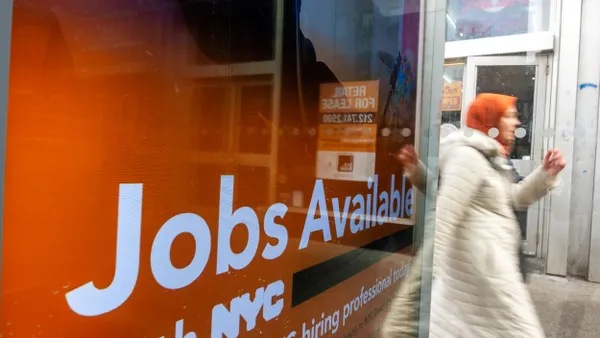Dive Brief:
- While 86% of employers think their benefits are modern, only 59% of workers agree, according to the results of Prudential’s 2025 Benefits and Beyond study, released Monday.
- Workers say their their top challenges are saving for retirement (45%), cost of everyday goods (44%), cost of housing (29%) and making it paycheck to paycheck (26%); and 1 in 10 workers identified being able to survive paycheck to paycheck as their No. 1 worry, the study found.
- “The study’s findings are clear: When it comes to workplace benefits, there is a disconnect on what companies offer and what employees actually need — now and in the future,” the press release said.
Dive Insight:
“The workplace is at a critical juncture and employee benefits are at the center of the shift,” the study said.
Employers seem primed to make changes to better meet employee needs, the report found. Nearly 7 in 10 employers said they expect to make some change in their benefits offerings in the next two years, including 22% who plan to make either a significant change or a complete overhaul.
Of the 750 employers surveyed, more than half cited wanting to improve employee well-being, employee retention and the employee experiences as reasons for reassessing their benefits. Cost was a factor for 4 out of 10 employers.
“Employees want benefits that go beyond traditional coverage and more completely address how they live and work,” Michael Estep, president of Prudential Group Insurance, said in a statement. “The workplace is at a tipping point, and there’s so much at stake for employers.”
Employers could tailor benefits to help employees address challenges involving saving for retirement, making it paycheck to paycheck, concern about job security and a need for flexible work arrangements, per the report.
The gap between workers’ wages and the rising cost of living is causing concern among workers, a Resume Now report from January found. Nearly 3 in 4 workers said they struggle to afford anything but their basic living expenses, and 12% of workers said they can’t always afford their basic living expenses.
Employers can help by offering better benefits, like healthcare and retirement matching; providing clear pathways to career growth and raises; and offering access to education and certificates that can improve workers’ earning potential, per the Resume Now report.















